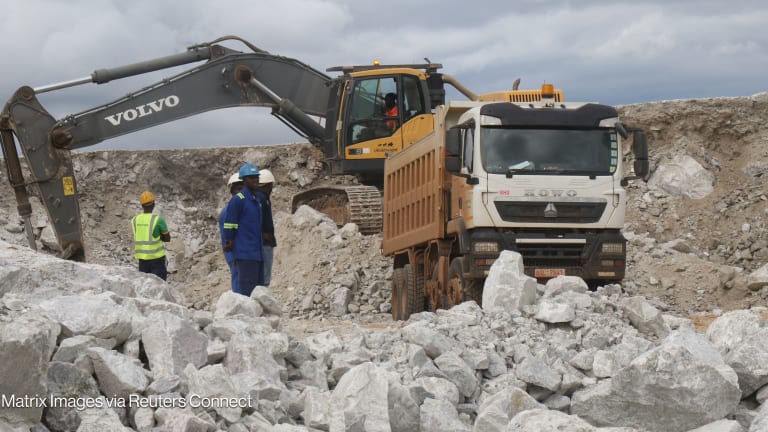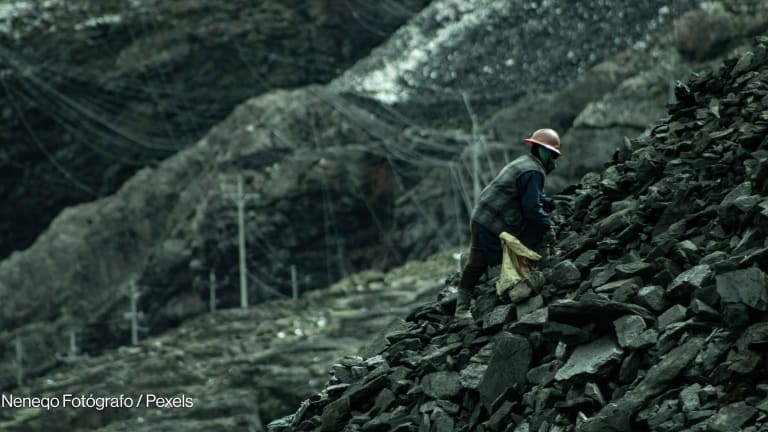
A quick glance at the list of Extractive Industries Transparency Initiative member countries begs a question: why do African and Asian countries comprise the bulk of participating states while Latin America is conspicuously under-represented?
EITI — despite its tongue twisting name — is arguably the premier global standard for openness and accountability in natural resource governance. But of the 51 countries that are officially designated as upholding the EITI standard, just four — Colombia, Guatemala, Honduras and Peru — are from South and Central America. Two states, the Dominican Republic, and Trinidad and Tobago, represent the Caribbean.
EITI’s aim is to promote development through transparency. It sets a uniform global standard for governments to publicly report the revenues that are generated from the extraction of natural resources, such as petroleum and minerals. Countries that agree to the standard commit to forming a multistakeholder group of government, business and civil society officials who oversee the public reporting process.
The dearth of Latin American EITI countries is not for lack of natural resources in the region. South and Central American countries are among the most petroleum and mineral-rich in the world. And export earnings from those commodities account for more than 50 percent of government revenues for many countries in the region.
Nor is there any reason to conclude the region is unconcerned with public transparency. Many countries in the region attribute their middle-income status and improved development indicators over the past several decades to strengthened rule of law and a vigorous culture of anti-corruption.
Read related stories:
► Fair contracts key to Africa's sustainable development
EITI’s supporters say benefits accrue from the process itself. Unlike mandatory disclosure laws that require companies to independently report their payments to governments, EITI promotes a dialogue among a range of stakeholders in extractive industries. The report — a detailed docket of tax revenues, royalties and licensing fees — is also a valuable resource to inform the public of the country’s natural resource wealth.
It is puzzling then that in a region where development, transparency and natural resources weigh so heavily on national agendas EITI is often left out of the conversation.
There are some reasons for that. One of them could be the misconceptions about EITI that circulated around the time it kicked off, said Daniel Kaufmann, president of the Natural Resource Governance Institute and a member of EITI’s international board.
“There was a stereotype that EITI was for very poor or poorly governed countries,” Kaufmann said. “Joining meant acknowledging the desperate needs of the country.”
EITI grew out of a movement among civil society organizations demanding that U.K. oil major BP be more transparent in its payments to the government of Angola. Thirteen years after its initial formation in 2003, EITI is still mainly comprised of least developed countries in sub-Saharan African. Latin America, meanwhile, adopted a “not for us” mentality, taking into account its generally stronger institutions and higher reputational aspirations that are more akin to middle-income countries.
Political ideology also plays a role, said Francisco Paris, EITI’s regional director for Latin and America and the Caribbean. Countries with populist, often anti-Western, leanings such as Bolivia, Ecuador, Nicaragua and Venezuela have tended to look skeptically towards international companies and organizations, Paris said.
“[EITI] was originally seen as an instrument pushed by [the Organization for Economic Cooperation and Development] and developed countries who were not part of it themselves,” he said. Countries such as Germany, Norway, the United Kingdom and the United States have since joined EITI, but it’s possible that skepticism about the “northern” agenda still lingers. EITI’s leadership has tended to privilege northern members. The newly inducted EITI chairman is from Sweden. Previous chairs hailed from the U.K. and Germany.
Insufficient information about the initiative could pose a barrier to its wider adoption in the Western Hemisphere too. Kaufmann recalled a minister of finance of a Latin American country asking him recently, “What is EITI?”
But perhaps the most pertinent explanation for Latin America’s absence, according to experts, is a question of relevance. When it comes to natural resource management in Latin America, environmental conservation and local community rights are among the most burning issues. “Those don’t figure prominently in terms of major EITI requirements,” said Kaufmann.
Cesar Gamboa, another EITI board member and executive director of a Peruvian nongovernmental organization that works on environmental issues, listed four requirements that he and other Latin American civil society organizations would like to see included in the EITI standard, beyond payment disclosures.
They include public reporting of oil and mining project plans before they enter operation, environmental impact assessments, calculations of how operators determine environmental costs and monitoring and evaluation assessments throughout a project’s lifecycle.
Absent these requirements for environmental disclosures, many civil society organizations in Latin America choose to pursue their agendas through advocacy channels other than EITI. Latin America’s civil society network is also already well developed, with access to governments, said Rachel Owens of Global Witness, an NGO that works on financial transparency. For many African civil society organizations, EITI represents a rare opportunity to sit at the same table as government officials.
There is an ongoing debate over whether to narrow the standards of participation in EITI or to keep them broad to encourage participation. EITI’s leadership has settled on the latter option. That might mean disappointing people like Gamboa, who would like to see more specific requirements that reflect Latin American civil society’s priorities. But others side with the decision to keep standards broad.
“I don’t think EITI should be the solution for everything,” said Paris. Expanding the standard to include the type of environmental and project level reporting that some civil society groups demand would require “an army” of verifiers, he noted.
In an open letter to environmental groups last year, EITI’s board said that imposing more restrictive requirements, “would potentially undermine country ownership, it would raise demands from other groups and it would create a straight-jacket for implementing countries.” As a global standard, EITI “has to be designed to be relevant in Togo as well as in the United States,” the letter explained.
Even without expanding into environmental disclosures, the EITI standard has continued to evolve. “It’s no longer just about chasing payments and comparing revenues,” said Paris. Broad updates to the EITI standard in 2013 and again at the board’s annual meeting in February now require greater participation by civil society groups and disclosures of the ownership structures of natural resource companies.
Further changes are likely. Paris said that there is now a greater need for countries to produce more timely reports, particularly as low commodity prices have been eating into government budgets.
The group of potential EITI countries in Latin America is also expanding. At the annual meeting in February, Suriname and Argentina both expressed commitments to join EITI in the near future. And Mexico, which in 2014 allowed private investment into its oil industry for the first time in more than 75 years, is also preparing to join, according to Paris.
Join Devex to network with peers, discover talent and forge new partnerships in international development — it’s free. Then sign up for the Devex Impact newsletter to receive cutting-edge news and analysis at the intersection of business and development.
Search for articles
Most Read
- 1
- 2
- 3
- 4
- 5








